Pax Romania, Para-mania
Georgescu and the split in Romania's secret services. Anti-Atlanticist sentiment among Romanian migrant workers. Boomer-zoomer alliance against millennials. Sniper martyrology: Ro 1989 and Ukr 2014.
The rule-based international order is in danger! All Romanian euro-patriots, to the trenches! Russia has tested out a new experimental hybrid warfare wunderwaffen!
Luckily, we have some of our own NATO defensive technologies…
Sometimes you need to respond to hypersonic missiles with old-fashioned concrete. And in Romania, they responded to nefarious election-meddling by cancelling elections results.
On December 4, the Romanian constitutional court ruled to annul the results of the first round of the presidential elections. This came after Calin Georgescu won the first round - a NATO skeptical politician with incorrect views on the war in Ukraine. No date has been announced for any pesky second round. Romania’s ‘pro-European’ parties - who lost the election - are in the process of forming a coalition government. The more parties in government, the more democracy.
The Free World is in danger
But what are these futuristic new Russian political technologies? How do they keep getting away with subverting elections in the Free World? First Drumpf, and now Georgescu? Surely the Mueller report should have definitively exposed and neutralized these despicable tactics?
Luckily, Romanian law enforcement has conducted an exhaustive investigation and produced a conclusive answer - TikTok.
Arnaud Bertrand summarized it as follows:
They document a social media campaign supporting Călin Georgescu that involved around 25,000 TikTok accounts coordinated through a Telegram channel, paid influencers, and coordinated messaging.
First of all, looking at it rationally, this is actually a relatively small number of TikTok accounts for a national presidential campaign, and the documents provide limited data about actual impact - they mention around 130 TikTok accounts generated between 1,000 and 500,000 views per video, but don't show comprehensive engagement statistics or evidence of significant voter influence.
Also, importantly, everything described in these documents could just as easily be interpreted as legitimate digital marketing. The documents don't provide concrete proof of foreign state involvement or manipulation - they merely suggest the campaign "correlates with a state actor's operating mode" and draws parallels to alleged Russian operations in Ukraine and Moldova.
The payment rates mentioned (400 lei per 20,000 followers, 1,000 euros per promotional video) are actually standard market rates for influencer marketing, though the documents do allege some payments were made illegally after the campaign period (the guy targeted by these allegations, a Romanian crypto entrepreneur called Bogdan Peschir, denies these allegations:). The campaign coordination through Telegram channels with specific posting guidelines is exactly how modern political campaigns operate.
What's notably missing from these documents is any concrete proof of foreign state involvement or manipulation. There's no technical evidence of artificial amplification, no proof the accounts were fake rather than real supporters, and no clear distinction between coordinated campaign activity (which is normal) and malicious manipulation.
Other Romanian euro-patriots have come out with their own justifications. Elena Lasconi, one of the presidential candidates, posted the following letter to x.com. She directed her letter to Trump, probably following rumours Georgescu was supported by Trump ally RFK Jr. Canceling the elections, however questionable, had to be put in the context of the fact that ‘My opponent’s candidacy was about putting Romania in the Russian corner.’
The letter even includes some ruminations on her ‘terror’ before ‘the cyclical nature of history’. Maybe she should read my substack on the topic. But her take seems more like the usual east European liberal lament about the incurable degeneracy of most of their compatriots. They find it quite paradoxical that the more liberal economic reforms, the less enthusiastic their fellow citizens about euro-atlantic integration.
The stakes
Of course, Romanian officials have been calling in response to ban Tik Tok. But what is the big deal with Georgescu? An alarmist Guardian article on the topic gives a rather clear answer:
Nato has particular reason to worry. Earlier this year the alliance announced a $2.7bn expansion at its Mihail Kogalniceanu base in Constanta, on the Black Sea coast. When complete, it will be the largest Nato military base in Europe. Its presence underscores Romania’s vital role in maintaining supply routes to Ukraine, facilitating Kyiv’s grain exports, and holding the frontline in the west’s deepening confrontation with Vladimir Putin’s Russia.
Yet if he has his way, Georgescu would cut aid to Ukraine and limit Romania’s collaboration with Nato, which he believes makes the country a target. He is critical of the deployment of US anti-missile batteries at Deveselu, in southern Romania, which he deems unnecessarily provocative of Moscow.
Indeed, Romania has played a major role in 21st century tensions between Russia and NATO. It was NATO’s construction of long-range missile bases in Romania and Poland that so soured Russian relations with NATO throughout the 2000s. While the majority of Poles opposed these plans in the 2000s, no matter. Claiming, quite ridiculously, that the bases were merely aimed at Iran, NATO paid no heed to the constant Russian criticisms. Georgescu, by the way, stated in 2021 that he saw NATO’s Romanian military base Deveselu as a “shame of diplomacy”.
If you look at Russian think tanks and government discourse about the origins of their current conflict with NATO, much attention is paid to these bases. They are seen as part of NATO plans to place Russia in a militarily hopeless encirclement, leaving it no option other than agreeing to all western demands. The following is from a 2018 Russian ministry of foreign affairs statement:
NATO's military activities increasingly involve Sweden, Finland, and other partner countries. Advanced command and staff units are being established, and decisions have been made to create new joint coalition force commands – in Norfolk (USA) to ensure the security of transport corridors in the North Atlantic and Arctic regions, and in Ulm (Germany) for management, planning, and logistics to organize military transport operations in Europe. The Pentagon has announced plans for the forward storage of military equipment in Central and Eastern European (CEE) and Baltic countries. Naval groupings patrolling the Baltic Sea have been strengthened. The number and duration of visits by the navies of non-Black Sea alliance states, primarily the United States, to the Black Sea have increased. NATO naval forces continue to patrol Baltic airspace with reinforced contingents, conducting “interception” sorties even when no violations have been committed by Russia. A missile defense system has been deployed in Romania. A similar facility is planned to become operational in Poland in 2020. Particularly concerning are plans for the permanent deployment of U.S. troops in that country and recent agreements to increase the American contingent there, which threatens the 1997 NATO-Russia Founding Act, one of the few remaining documents intended to ensure military stability in Europe.
Gradually but systematically, the previously effective architecture of European security and the norms of international law are being dismantled. The abandonment of key agreements that ensure military restraint, with the silent acquiescence of most alliance members – the situation surrounding the INF Treaty is a clear example – threatens to trigger a new arms race and a return to the principles of the confrontation era.
Naturally, such NATO military preparations cannot remain without our appropriate response.
In fact, Romania and Ukraine have much more in common.
Unidentified snipers
By February 17, 2014, the euromaidan movement in Kiev was on its last legs. The official opposition, under pressure from Old Europe (Germany and France) was coming to an agreement with the Yanukovych government. There would be no armed overthrow of the ‘pro-Russian’ government. Many in the country were becoming bored of the movement and returning to normal life.
But then the shootings began. Protestors died, police died. Snipers, apparently. It all came to a climax on February 20, where over 50 people were killed. After that, the maidan hardliners said, there was no going back - Yanukovych had to go. And go he did, fleeing under threat of his life. Maidan won, and its enemies were branded as inhuman mass murderers.
No one ever explained why the Yanukovych government saw fit to go on a killing spree right as it was about to come to a peaceful agreement with the opposition. A killing spree which, naturally, destroyed Yanukovych’s chances of holding onto power. I wrote about the timeline of the events here.
The maidan square became a sort of open mausoleum to the ‘heavenly hundred’, as the martyrs of the snipers became known. Of course, this only included the protestors. Not the police, who for some reason were killed by the mysterious snipers. And then it started emerging that many of those included in the ‘heavenly hundred’ didn’t even die at maidan square.

Then the official investigation wasn’t able to find anyone guilty for it. And it kept on uncovering uncomfortable evidence that people on the wrong side of the barricades were responsible for shooting at all sides. Then these same ‘heroes of maidan’ started boasting about how they started shooting at the police. All this has been analyzed in detail on the basis of open-source material and court documents by professor Ivan Katchanovski. Even the Atlantic Council had to admit that things were very fishy in 2020.
But all this already happened in Romania. In December 1989, communist president Nicolae Ceaușescu was overthrown. Originally called a glorious revolution, a triumph of popular power against dictatorship, it was quickly clear that something else had happened.
With Ceaușescuand his wife executed after a one minute 44 second trial, he was replaced by Ion Iliescu, top communist party functionary. In 2018, a legal case was put forward against Iliesco for crimes against humanity during the ‘revolution’, but it was dismissed. In 2023 it resumed. There’s general agreement in Romania that nothing will be known until after the ex-president’s death.
What really happened in December 1989? On December 17, snipers appeared in the capital, Bucharest. Over a thousand people were killed by mysterious groups over the course of December 17-25. But Ceaușescu had already fled the city on December 22, and was executed on the 25th. Reports of unidentified ‘sniper groups’ became particularly common after Ceaușescu’s departure. Just like in Ukraine, no one has ever been brought to justice for the killings.
A radio announcer reported it to the country as ‘The antichrist has been executed on Christmas Day’. But who was behind it? The man responsible for killing Ceaușescu - now filled with remorse - was a Romanian elite paratrooper, acting on orders from above:
For two years, in the late 1980s, Cirlan had been a member of an elite paratroop commando unit. On the morning of Christmas Day 1989 his unit was told that volunteers were needed for a "special mission" categorised Zero Degrees - "which signified that one did not know that one was going to return". Eight commandos were flown in two helicopters, "commando style", says Cirlan, "at 150kph, but only 15-30 metres above the ground, so as to fly below radar, and in a zig-zag motion." The destination was a stretch of land near the Steaua Bucharest football stadium. "We were met by a convoy of an APC [armoured personnel carrier] and several cars carrying senior officials and General Victor Stanculescu, whom I knew from the TV was the revolutionary deputy minister of defence, and whom I had seen on television as part of the National Salvation Front."
….
Ceaușescu arrived at the court and, according to Cirlan, he panicked: "He didn't know who we were. 'Are you Romanian?' he asked. 'We are with the general,' I answered. We had to stand guard outside the trial, but could hear perfectly well. When the sentence was read, it was a terrible moment. 'Appeal in 10 days,' said the voice, 'sentence to be carried out immediately.' I was about to kill the president, but I told myself to act without thinking, especially from any judicial point of view. General Stanculescu took a stand. He ordered us to tie them up, take them to the wall, shoot him and then her."
68% of Romanians believe that the trial of the Ceaușescu couple was unfair. 71% believe the verdict was wrong. It’s hard not to get that impression, reading the account of the killings given by the executioner:
Then the Ceaușescus appeared. "They were whining like children," Cirlan remembers. "'We can't be killed like dogs!' he cried, and looked at us. 'We're going to be killed like dogs!' It was a hard moment for all of us. Then she said: 'If you are going to kill us, then out of respect for our love for each other, don't kill him and make me watch. At least let me die along with my husband.' And the general ordered: 'Take her to the wall with him.'"
At one point, Cirlan said, "It was so hard to look at them, we turned away. They were placed against the wall. We knew who they were, but I suddenly saw this human face - he looked so puzzled by it all. Then he looked straight into my eyes and shouted: 'Long live the socialist republic of Romania! History will avenge me!' And he started singing a fragment of the 'Internationale'. That is when the order came, and all three of us fired, from the hip. We shot him while he was singing. We shot them from a distance of one metre, maybe even 50cm. We'd only emptied half the magazines before they were pinned to the wall, dead. The impact of bullets into her was so strong that she went like this..." and Cirlan, seated until now, gets up to demonstrate how Elena Ceaușescu was blown diagonally and upwards against the wall. He then returns to the black faux-leather sofa.

And what about the results of this glorious revlution? In a 2014 poll, only 33% believed that life was better for Romanians today than before 1989. 40% believed life was worse now. In a 2023 poll, 48% answered that the socialist period was a good thing for Romania. Even some of the elite agree that the revolution wasn’t all it was cracked up to be.
The corruption results not only from the falsehood of the "revolution", says Mattei Paulin, an investment banker raised abroad but who repatriated after 1989, but in "the west's complicity in the privatisations" that followed. "Before 1989, there were various factions within the communist system," Paulin told me. "Now, after what I call a 'regicide' rather than a coup d'état, let alone a revolution, those same factions exist in what appears to be a market system, but is in reality a rotten state which sold off such assets as the national bank and Petrom [the state oil company] and its substantial drilling interests for a fraction of their value, to companies from France, Austria and other countries, simply to protect their own political positions. The western powers and corporations happily and knowingly played along."

There are so many theories on what actually happened in Romania that fateful December that I won’t even try to come to a conclusion on the particular groups responsible. In another poll, 78% of Romanians answered that they did not know the truth about the 1989 events. Only 17% felt they knew.
Honestly, one comes with a clearer impression on what actually happened after reading Katchanovski’s work on Ukraine’s mysterious snipers - that it was committed by elements in the euromaidan protestors as a way to guarantee the total victory of the revolution and eliminate any compromise solutions. But with Romania, too many questions remain - why was it necessary to kill so many once it was already very clear that Ceaușescu had been overthrown?
One of my favorite threads is the links with Gorbachev’s USSR. After the ‘National Salvation Front’ won elections, formed almost entirely out of communist functionaries, Romania was described in local newspapers as ‘Gorbachev's dream, the confirmation of communist rule in free elections’. Ceaușescu was critical of Gorbachev’s economic liberalization and abandonment of communist solidarity. Ceaușescu supported Marxism-Leninism, as opposed to Gorbachev’s free market eurocentrism.
And when the Romanian leader got got, he was replaced by Iliescu, a known ally of Gorbachev. In the 2000s, more interesting evidence emerged when a Russian dissident leaked documents from the Gorbachev Foundation’s archive, purportedly demonstrating the presence of embedded KGB agents in the ‘revolution’.
In both Romania 1989 and Ukraine 2014, what took place was a coup against the government by a fraction of the elite. In both cases, the goal was to integrate with transnational, western capital, and the ultimate protagonists were members of the politico-economic establishment frustrated with excessive centralization of resources by the leadership. While communist figures like Iliescu benefitted in Romania, there were just as important traitors within the Yanukovych elite in Ukraine - particularly Sergei Lyovochkin, as I wrote here.
But it isn’t enough to simply change the government - blood must be spilled to christen the new regime. The antichrist had been killed, crowed Romanian television. But the people, too, had to die - a heavenly hundred had to be created. Or rather, a heavenly thousand. When the aims and the results of the revolution are obviously anti-popular and predatory, martyrology is essential. And you can’t create martyrs out of thin air, just as sniper bullets don’t fly without commands.
A spooky interlude
Back to Georgescu. As you can tell, Romania is a country where the communist-era secret services, or Securitate, continue to rule the roost. So how does Georgescu fit in?
To begin with, it’s worth noting that Georgescu isn’t as much of an outsider as it might seem. The list of his international roles is truly impressive - senior advisor at the UNDP on sustainable development, President of the European Research Centre of the Club of Rome…
And according to my good friend in Romania, Georgescu represents a split within the Romanian intelligence community. On the one side is the SRI, the Romanian domestic intelligence services - they are fully pro-EU. On the other side is the SIE, the foreign intelligence services, who have had much less control since 89. My friend believes that the SIE is behind Georgescu.
While the SIE has made an effort to be part of the anti-Georgescu campaign, there is interesting cause for doubt. Primarily, the fact that members of the French Foreign Legion were responsible for guarding Georgescu. According to my source, Romanian entry to the Foreign Legion is entirely managed by the SIE. And on December 9, Horaţiu Potra was arrested, the most eminent among these Legionnaire Georgescu guards. And he was released soon after, possibly indicating he has some protection up above.
According to Radio Free Europe, there were quite a few Foreign Legion fighters in Georgescu’s entourage. The official investigation against Georgescu I went into at the start of this article is claiming that these Legionnaires were in kahoots, of course, with Russia.
Their background gives some interesting clues. One of them is called Marin Burcea also known as "The Sniper” (…). He served in French Guiana and Brazil.
Another is Romeo Mihai Anechitei, who worked in Congo with the Foreign Legion from 2003 to 2008. Not to lean too heavily into the ‘Russian agent’ angle, but could it not have been possible for them to have linked up with like-minded Russian military contractors in the distant jungles of Africa? Eugen Sechila, who is apparently Georgescu’s advisor, claims he served for 16 years in Sub-Saharan Africa. He also organizes events ‘promoting anti-communist fighters’ (read: 1940s mystical fascism).
Am I saying that nefarious Russian hybrid warfare is to blame? To begin with, I fail to see how hiring some military contractors who might have hung out with a Wagner guy in the Congo directly translates into winning elections.
But I do think it is possible to assume that the networking and activities conducted by Romania’s foreign intelligence services has led to differing ideological views among its personnel, as compared to domestic intelligence. And given general political discontent, why wouldn’t the more ‘geopolitically realist’ intel branch (as my Romanian friend put it) seize the chance to advertise its audience to the masses and take power from its domestic competitor?
NATO anti-fascism
And a note about fascism in Romania. Many critics of Georgescu are loudly pointing to his supposed love for fascist collaborators like Antonescu and Codreanu (the former was Hitler-allied leader of Romania in the 40s, the latter was a mystical fascist with a large popular following, whose organization ‘the Iron Guard’ was at times repressed by Antonescu). I myself don’t have any opinion on Georgescu as a politician - he simply represents a protest vote against Romania’s post-socialist present - but I do have something to say on the matter of Romanian fascism.
First of all, that supporting Antonescu or Codreanu is hardly uncommon in Romania. A 2007 TV poll found that Antonescu was the sixth most popular Romanian - and this after the host harangued the audience at length as to why they should not vote for ‘the Conductor’. Fascism didn’t last particularly long in Romania, meaning that plenty of discontent with liberalism can easily be transposed onto it. And anyway, the generalized anti-communist discourse of the post-socialist period has made heroization of figures like Antonescu and Codreanu relatively accepted.
Which brings me to my next point - the insincerity of ‘anti-fascist’ critics of Georgescu. The fact is that most Romanian pro-NATO liberals have at least neutral views at least on Antonescu, and often also on Codreanu - they see them as brave fighters against communism and the Russians. If you’re unlucky enough to follow Romanian NAFO accounts, like I do, you will have noticed this. But they manage to be shameless enough to mix that up with ‘sincere’ threads about the threat of Georgescu’s fascism.
In fact, Romanian fascism has an illustrious history of cooperation with NATO. Much of the Iron Guard spent its post-war exile working with Ukrainian nationalists and other CIA pets in the Anti-Bolshevik Bloc of Nations - see Russ Bellant’s classic work on the topic.
My opinion regarding Georgescu is simple. I’m a believer in democracy - I think people should be able to choose their governments. Even if they’re fascists. If you try to deny their choice, that’ll just make them hunker down in their support. Unless you give them some really good reasons to love their new foreign occupiers. Just have a look at Afghanistan, where NATO spent decades trying to convince Afghans that they shouldn’t trust the retrograde Taliban.
Politics only really evolves at the national scale. Attempts to transplant it internationally don’t work. If fascism is such a bad idea, which I tend to think it is, particularly given how self-destructive it has historically proven, then the country in question needs to learn that through experience.
But I don’t really see the point in scaremongering about Georgescu. The guy is a dime-a-dozen east European populist eccentric. By cancelling elections, the EU has simply proven to Romanians yet again that their opinion about their own country doesn’t matter.
Whence Georgescu
So why did they vote for Georgescu? When I came to Romania, I was somewhat surprised, not that I should have been. In Ukraine, joining the EU is equated to entering the garden of Eden. But Romania is far from that. According to the World Bank, 29% of rural Romanians have access to piped water, and only 10% have a flush toilet. Nationwide, the figure stands at 71% and 61%, respectively.
Romania isn’t the flagship of the eastern EU - that honor goes to Poland. Poland was also the largest recipient of EU budget funds, receiving far more than Romania ever did. The west always needs some appealing models, but there’s limited space - see my old article on the Ukraine-South Korea comparison (fantasy).
And anyway, Poland benefits a great deal from its neighbour’s situation. Warsaw was always the strongest supporter of Ukraine’s euro-atlantic aspirations, and it has been rewarded - fleeing deindustrialization, millions of Ukrainians were forced to work in Poland for a pittance, often in slavery-like conditions. According to Poland’s national bank, 11% of GDP growth after 2014 is thanks to Ukrainian migrant labourers.
But while not a utopia, Romania does represent all the contradictions I write so much about in Ukraine. Most of all, that between the disempowered, exploited majority, and the English-speaking liberal urbanites. The former scrub toilets in England, clean up after the elderly in Italy, get trapped in sex slavery in Germany, or work at Austrian car factories in Romania. The latter get EU democracy promotion grants. There aren’t many of them left in Romania anyway.
You’ll never hear from the former, and the image of Romania in the media is formed entirely by the latter - so naturally, the general conception is that Romanians are eternally grateful for EU membership.
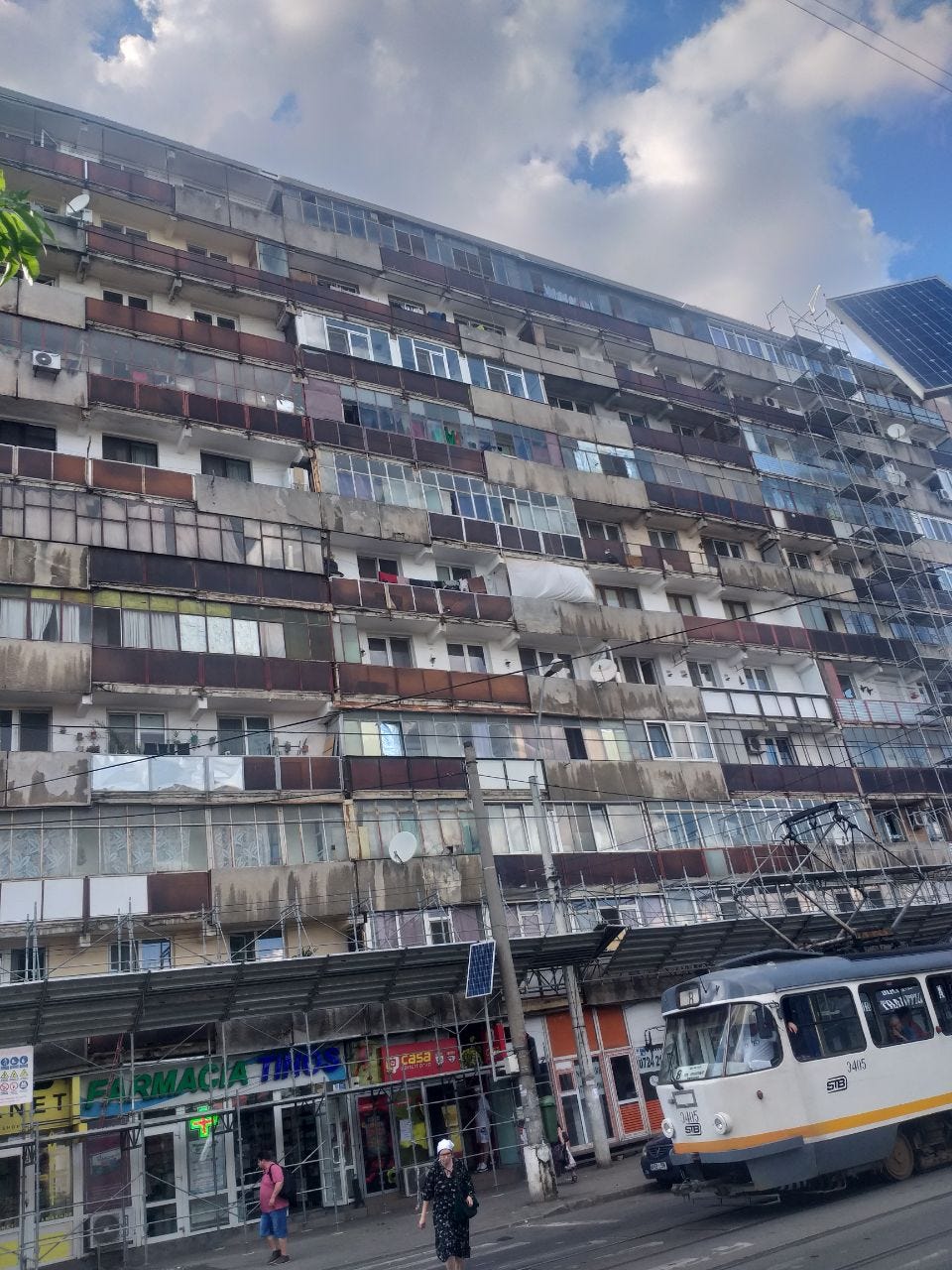
But luckily, I managed to talk with some ordinary Romanians. Here is Dan, a truck driver who struck up conversation with me at a Bucharest cafe. Our conversation was conducted in a strange mix of Russian, Ukrainian, English and Romanian, so keep that in mind when it comes to lexical characteristics. But hopefully it gives the reader a clue as to why Georgescu’s anti-atlanticist message was most popular among Romanians living abroad in the EU - where he got 43% of the vote.
Me - What is life like for Romanians after entering the EU?
Dan - 60% of us earn 300 euros or less. 10% earn 50 euros or less. Foreign companies love Romania. Romanians don’t. All the foreigners come here.
Me - Have people’s incomes risen after joining the EU?
Dan - In Romania, democracy comes after this. Everyone wants money. For money, go to another place for working. Your family is here. You must take two families: you abroad and your family here. And you work ten years and coming home, and look, you have a great house, ten rooms, two beds. Staying here, I can’t pay the water, the gas. You can’t pay for it.
Me - How many people leave the country?
Dan - In 1990 Romania was 22 million, now it’s 14 million. Look, in my family three persons are in Romania, one is out, the son is working in England. He is now a citizen of England, no coming back. Why, for me, no, he is not coming back.
Me - What work is there in Romania today?
Dan - You can find something here. But it is necessary much time to find something. Tomorrow go to working but it is necessary time. People work everywhere. Some people say in Romania you can give 2000 euros, it is not necessary university. The problem is finish university but study not important. People finish university but it doesn’t help. IT is very popular. But you go to work in construction. Working for maximum 3 thousand euros a month, but you working, you know, hard. But driver is not driver in Romania, in Europe it is necessary the drivers. Nobody wants to go to drive. I go a month, I go to Romania, I go from voyage in Syria, Jordan, everything. Go a month and back. I have money. No young want go. My son work morning. After 10 he comes home. 5 days a week. He makes 3000 pounds a month in England. But he must pay the house, car, house, electric. For him is not interesting.
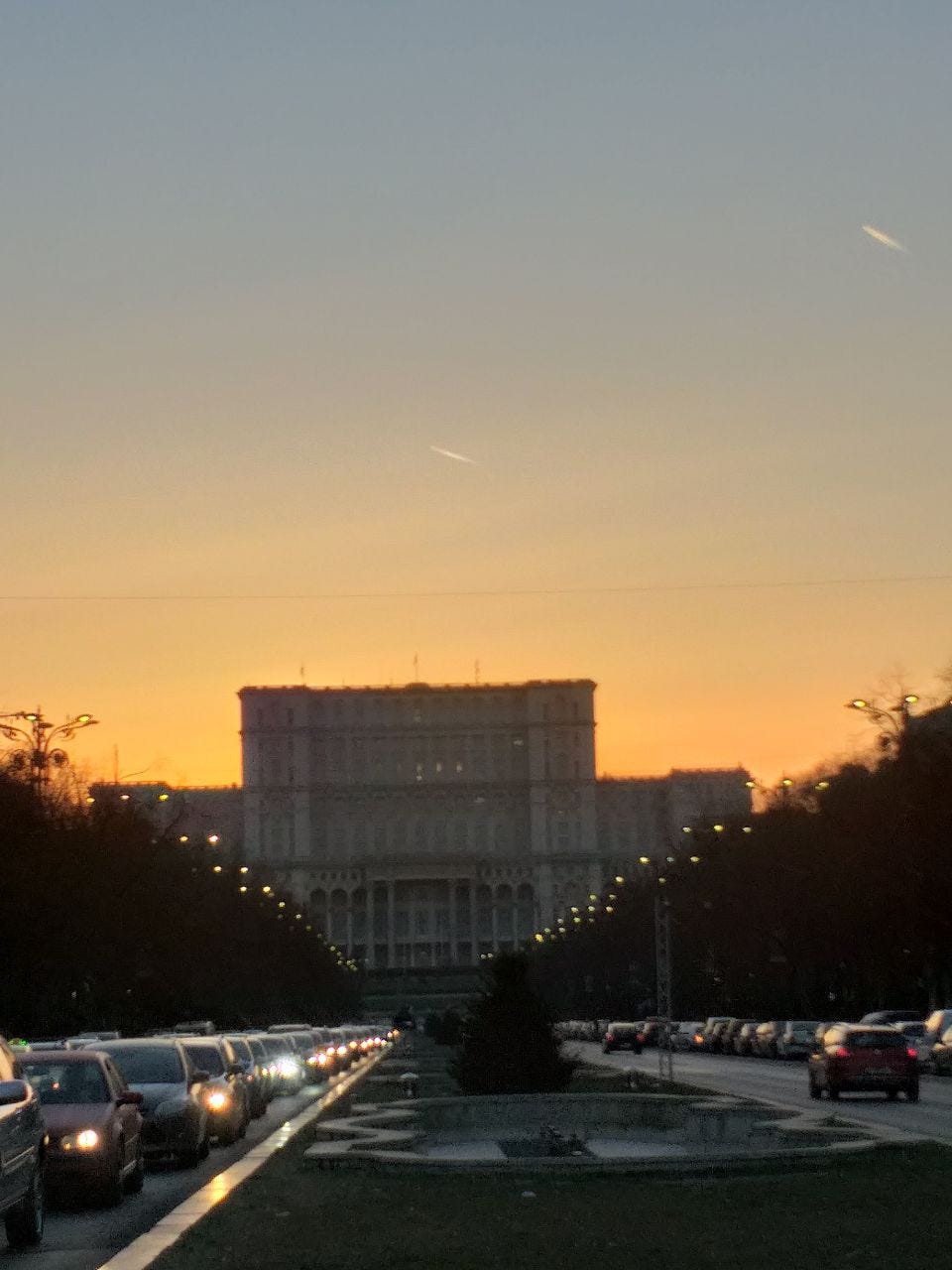
Me - What do you think of Ceaușescu?
Dan - In your country military service obligatory? In my country military service not obligatory. You want to go drink, you can. I love my country, I am patriotic. Now there is no reason to love this country. For a young country – why? You go. When I was young I could go to drink, to theatre. When you were young I was patriotic, I love the flag, in Ceaușescu time. Everyone say they patriotic, but it’s not real. They wave flag but not real, they want to go England, Austria. You have a good tractor, in 1 month, give army 2 milliard dollars. Now. Now spend a lot on military, but not much on people. This park is Ceaușescu. Now there is nothing again. Only changed the park theatre. My wife say you must go to theater, national, but it’s expensive to enter. It’s expensive. Much money. 1 ticket to movie cinema 6 lei. For young, student, 1 lei. In Ceaușescu. Now, haha. You have 2 child, you and your wife go to Cinematronic. Is only for enter 100 lei. 20 euro for enter. No for chips, for drink, only for enter.
Me - What did patriotism mean under Ceaușescu?
Dan - Because education, this is why patriotic. Country give you education, is patriotic. But in this patriotic education, put the party. And say no, for not necessary say this. In school I have philosophy. In college I have constitution. I have everything. In this moment, there is nothing, they give sexual education.
Me - What are the government priorities now?
Dan - You have 40 thousand military people, that 100 euro a day for each. Romania give 2.5% of budget to NATO. Not for army, for NATO. Constitution say you must pay 6% to education. And give in reality 3% education. Everything is only for government, for parliament, for police, for army, for service secretary. For everything, no. NATO is expensive, not necessary.
Then he started telling me about his experience getting cancer treatment:
Dan - Is good you have money. Your father have no money is bad. Maybe I speak stupidity, but it’s my vision. I working, I working, I working, I finish, I say. This is life. Everywhere is life. In this modern life. You working and finish. I not lying. Are lying working for it. And one day he said, say ok. And family say OK, I am going. Don’t lie and die because no eat. He have conscience. I say no, much leave. Go fix you can move, you stay in bed. He say revolutionary treatment look at TV and say I have revolutionary treatment. You see the revolutionary treatment on the TV, but it’s only on TV and only in the US, costs much money.
Past, future and present
Interesting things are happening in Romania. Back in 2022, I met up with a young man in a Saddam Hussein t-shirt. He is a communist streamer - so popular that he was even recognized by fans in the metro who asked for his autograph. He describes current events in Romania and the world to his young online audience.
He told me about the current generational divide in Romania - based boomers and zoomers versus the liberals. The first category, as you saw with Dan, have quite warm memories about socialism. My friend confirmed, by the way, Dan’s stories about how popular the cheap socialist cinema was. Apparently it’s a popular topic.
Next, the millennials, those born in the late 80s or 90s - they only saw the worst of austerity socialism and the economic devastation of the 90s. For them, entering the EU was an upgrade, and it also became easier to leave the country. This generation is totally Fukuyamite in its views. I also met a few of them.
Finally, the zoomers. They grew up in post-socialist, euro-atlantic Romania - and they don’t have much reason to like it. Ideologically, they are more heterogenous than the other generations, but liberalism is certainly less popular than its competitors. All in all, a common story not just in eastern Europe, but around the world.
I’ll end with a photo I took in Bucharest. This was in the center of the city, amidst restaurants and tourist hotspots. A child of around 10 years walked through this door, holding a plastic bag for huffing glue. Such a scene for me is generally associated with 90s and 2000s Ukraine or Russia. The end of history never ended in Romania.
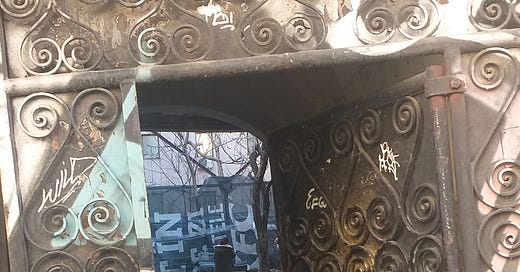


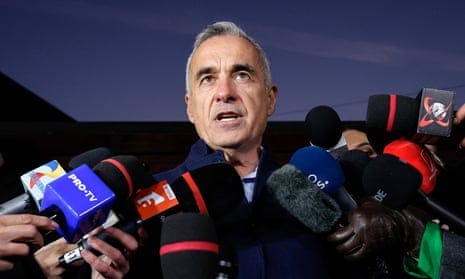
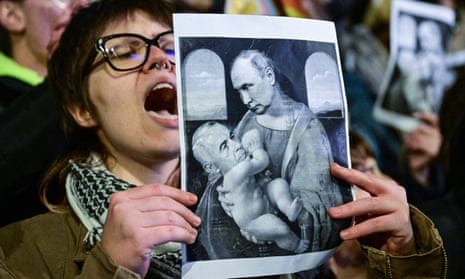
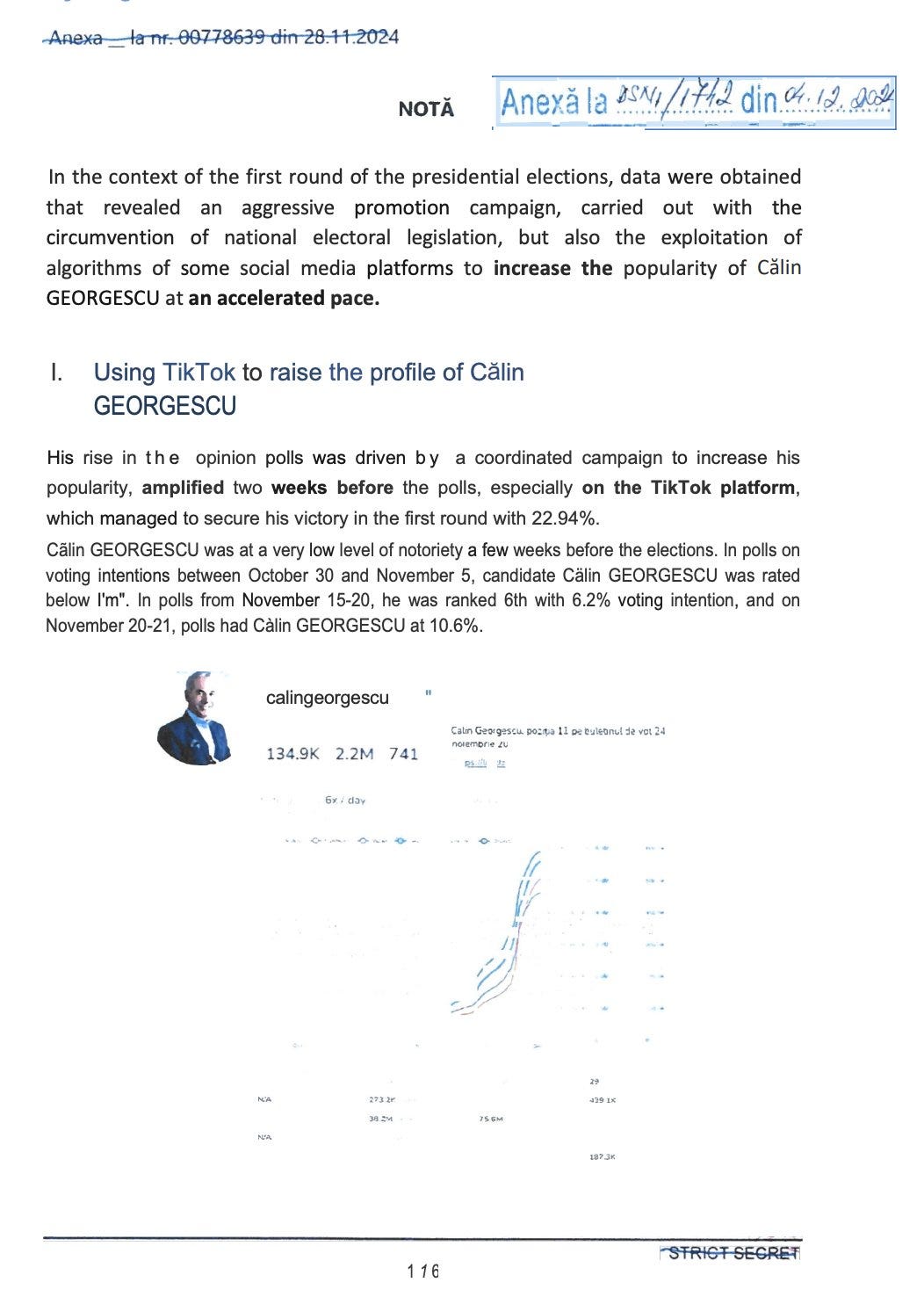

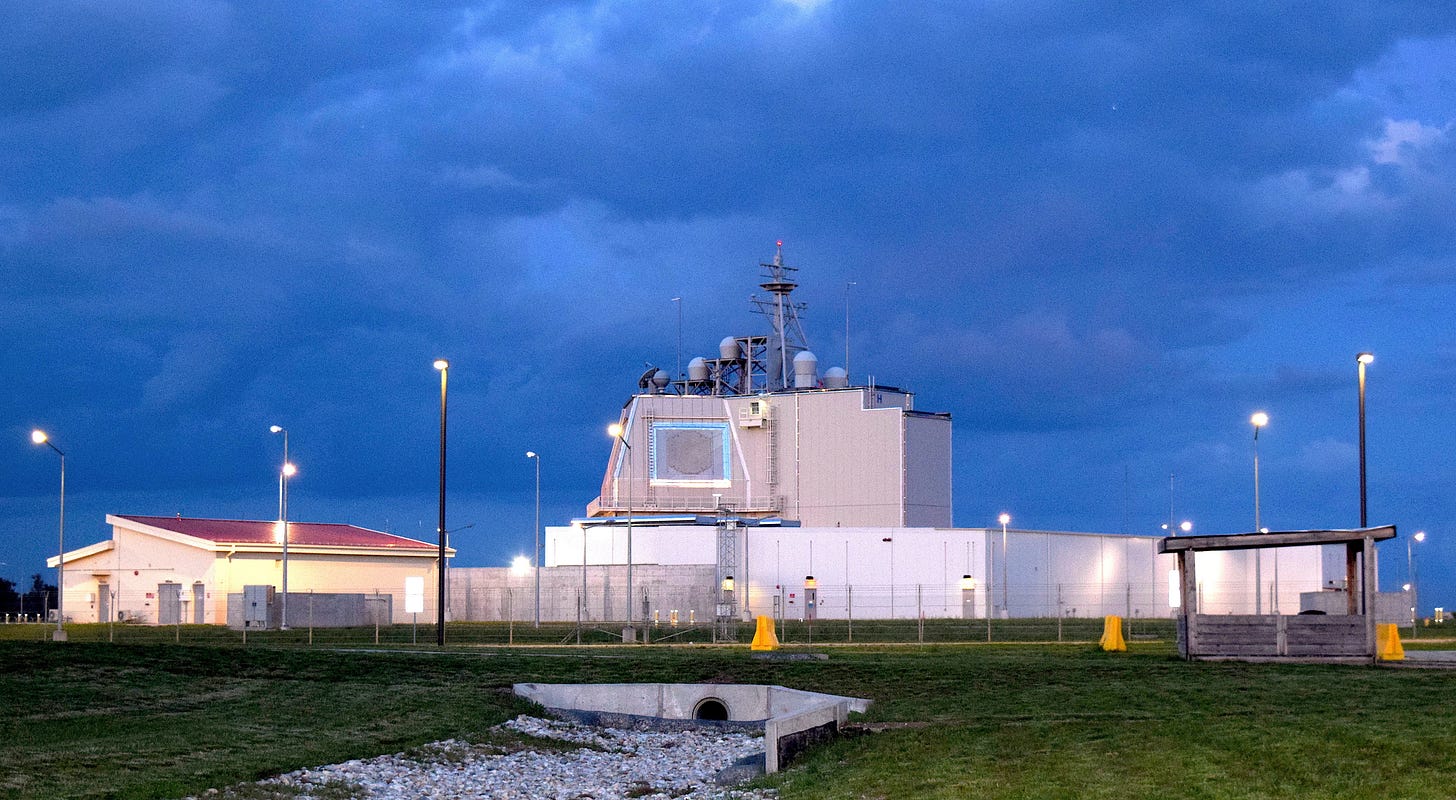

![Infantryman and tanker of the Romanian Army aim PSL sniper rifles in Bucharest during the Romanian Revolution of December 1989, against the communist dictator Nicolae Ceaușescu. [1600x1052] : r/HistoryPorn Infantryman and tanker of the Romanian Army aim PSL sniper rifles in Bucharest during the Romanian Revolution of December 1989, against the communist dictator Nicolae Ceaușescu. [1600x1052] : r/HistoryPorn](https://substackcdn.com/image/fetch/$s_!K_ZI!,w_1456,c_limit,f_auto,q_auto:good,fl_progressive:steep/https%3A%2F%2Fsubstack-post-media.s3.amazonaws.com%2Fpublic%2Fimages%2F1c6101fe-73d8-46e7-855c-3fb6bb4243f1_1080x710.jpeg)
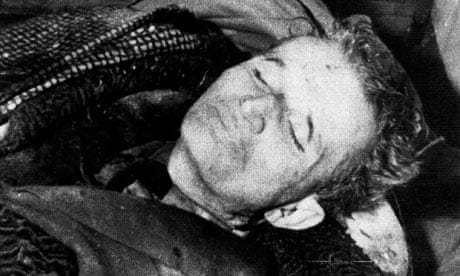

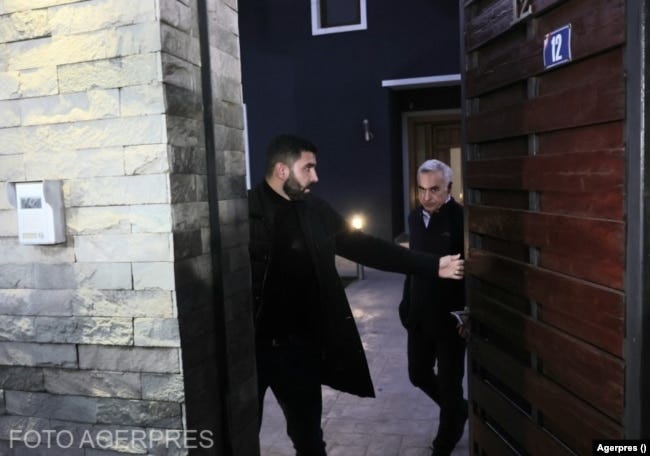

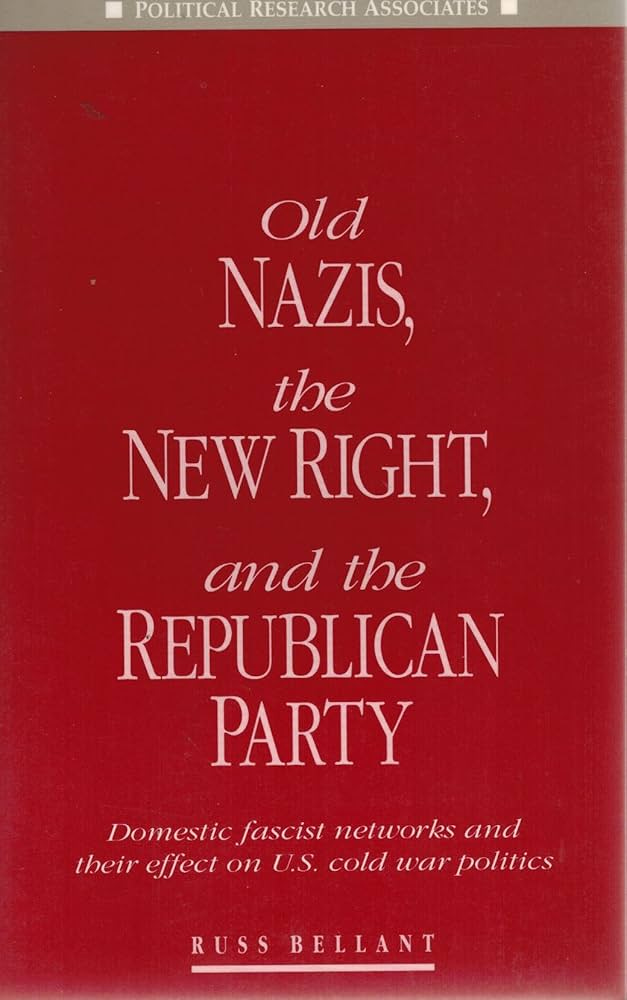
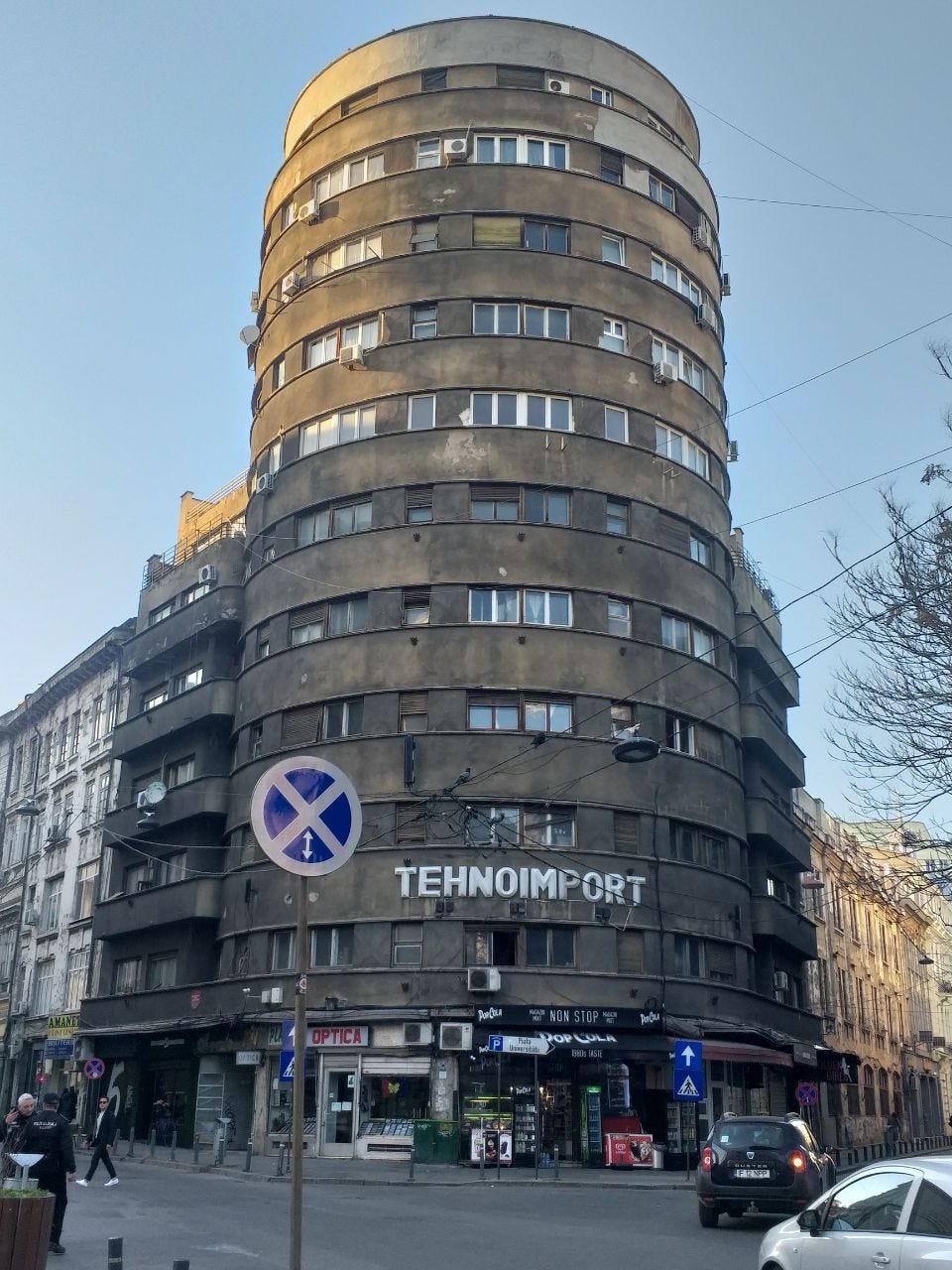
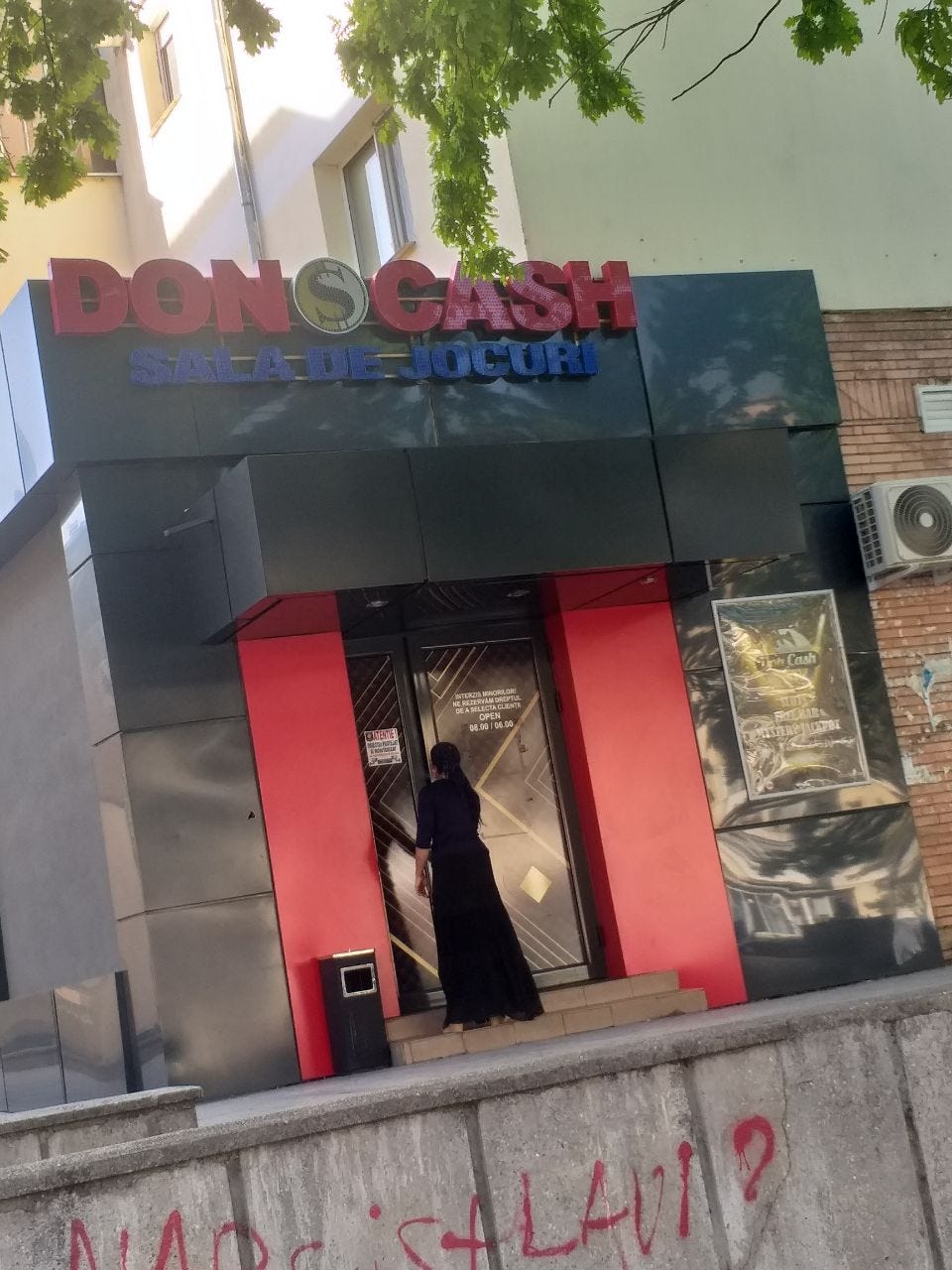
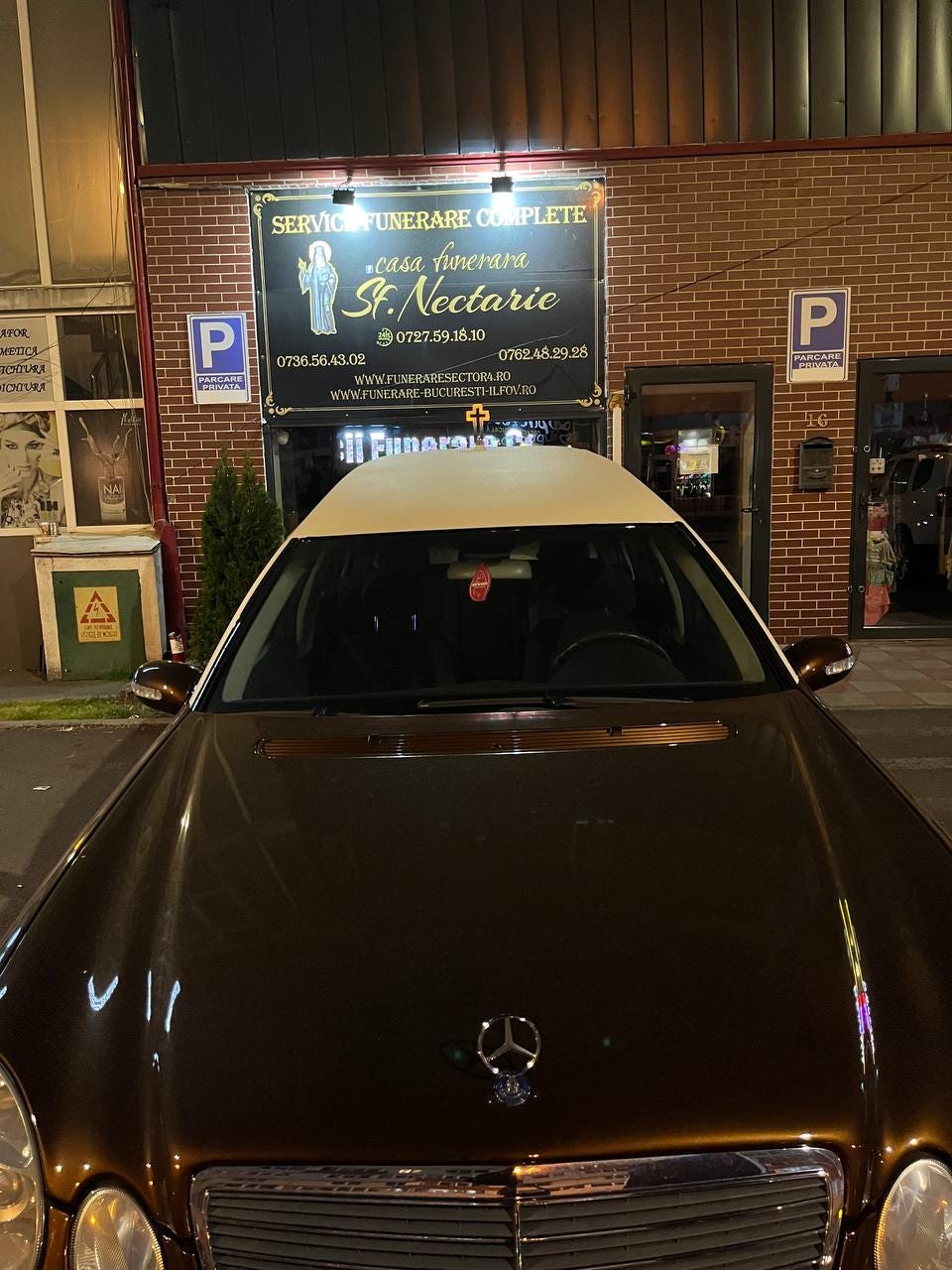

Nice to see a non-westerner writing about Romania. Especially when it comes from one of our neighbours. Great article overall and you got a good feel of the zeitgeist.
My only gripe is with comparing the Revolution to Maidan. There was a genuine cross-class desire to get rid of Ceausescu. People might have changed their opinion now after seeing capitalism, but the desire was there, not only some elites.
Those snipers, killings and chaos, probably came from incompetence and fear of the secret services and the military.
This incompetence and cross-agency conflict can be seen even now with Georgescu. Rather than a deep-state conspiracy putting him up there, or trying to put him down, the agencies did nothing and created a school grade report to justify cancelling the elections.
Keep it up, I'm subscribing.
Very great article. I lived in Romania for 19 years and this is how I feel as well. I'm pleasantly surprised by the details, I wasn't expecting such depth when it comes to my country!